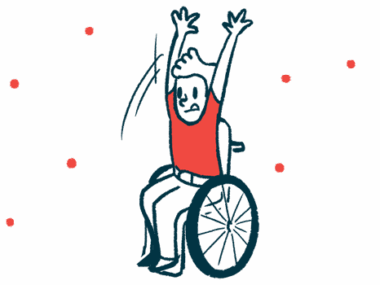Deciding whether SMA is our friend, enemy, or something else entirely
A columnist considers different attitudes toward disability — all valid, she says
Written by |

As humans, we so often want everything to fit into tidy little boxes with labels that clearly identify the contents. But while we may be able to draw a few parallels, life isn’t exactly like organizing a storage closet. It’s more complicated than that.
That knowledge doesn’t always stop us from trying to make things fit where we feel like they should, though. Sometimes, we even try to apply this kind of thinking to disability.
One debate I see often in the disability and SMA communities is this: Is disability an entirely bad thing, and if not, does that mean it’s somehow good? In other words, should we count it as a friend or an enemy? I can see both sides of the argument.
Is SMA our enemy?
On one hand, we have the idea that disability is bad. In some ways, this makes sense. Disability adds plenty of challenges to our lives, and it can harm our physical and mental well-being.
SMA has shown me firsthand that parts of life with a disability are painful. There are illnesses and procedures, loss and grief, trials and hardships. And none of those feel particularly good. But I don’t believe that means goodness can’t grow from them.
Although I’m familiar with these hardships, I also know that they can become gateways to beautiful opportunities — opportunities for faith, community, wisdom, change, gratitude, and so much more.
There are certainly times when it isn’t easy to live with SMA. I won’t deny that reality. But my life is still irrefutably good, and as odd as it might sound, SMA has been a part of — and even helped contribute to — that goodness. And I cannot honestly say that I’ve ever felt that SMA is my enemy.
Or is it our friend?
If disability isn’t an enemy, then it could, on the other hand, be a friend. That sounds like a more pleasant alternative, and there’s also validity to it.
This concept has brought comfort and companionship to Muscular Dystrophy News Today columnist Shalom Lim. In a column titled “Can Disability Become a Friend? It Has for Me.,” he writes, “Duchenne has been with me through thick and thin. We cannot be separated, literally. Even though I didn’t fully realize it as a child, it has been my constant buddy.”
Likewise, SMA has been a constant in my life. Once, I even referred to it as a companion in a column I wrote about traveling with it.
Whether I’m awake or asleep, SMA is always around. It silently tags along on every adventure, but it doesn’t let you forget it’s there. And if you’re going to spend that much time with something, you’d probably prefer to make it your friend rather than your enemy.
Yet I’m not quite comfortable calling SMA my friend, either. It doesn’t intentionally cause me harm, but its negative effects are undeniable. It’s also demanding of my time and energy and far more troublesome than any friend. Plus, it’s not the best conversationalist.
Maybe there are other choices
If SMA isn’t a friend or enemy — if it isn’t strictly good or bad — what does that mean? Aren’t those the only options?
If neither of those options perfectly resonated with you, don’t worry. There are more. Those are only the extremes. Between them lies a vast chasm filled with possibilities. We may not know exactly what each one is called, but by exploring those options and keeping an open mind, we can find a balance that fits our unique situations and perspectives.
In a column titled “Pain and Me: Defining the Relationship,” Porphyria News columnist Claire Richmond shares how receiving a diagnosis helped her accept her disease-related pain. Claire still lives with chronic pain, but she no longer feels she must fight with it. She writes, “I still don’t really understand my pain, but I am finding ways for it to peacefully co-exist with me by using mindful self-compassion.”
I like that idea of peaceful co-existence. It doesn’t force our mindsets about disability into boxes that weren’t made to hold them. It leaves enough room for shifts, changes, and growth from day to day. We may still get frustrated with our disabilities, but we can also live joyfully with them.
Labels such as “good” and “bad” do have a place and a purpose, but not everything needs to fit cleanly into just one of those categories. And some things may not stay in the same category forever.
Accepting this might not make things any less complicated, but maybe complicated doesn’t have to mean something bad, either. Maybe it means we each get to find our own perspectives on disability that we’ll allow to shift and evolve as we do. Now, that’s an idea that sounds pretty good.
Note: SMA News Today is strictly a news and information website about the disease. It does not provide medical advice, diagnosis, or treatment. This content is not intended to be a substitute for professional medical advice, diagnosis, or treatment. Always seek the advice of your physician or other qualified health provider with any questions you may have regarding a medical condition. Never disregard professional medical advice or delay in seeking it because of something you have read on this website. The opinions expressed in this column are not those of SMA News Today or its parent company, Bionews, and are intended to spark discussion about issues pertaining to spinal muscular atrophy.





Leave a comment
Fill in the required fields to post. Your email address will not be published.